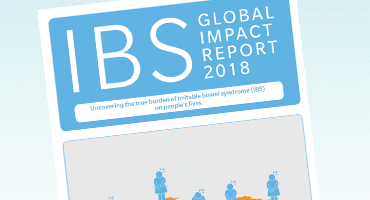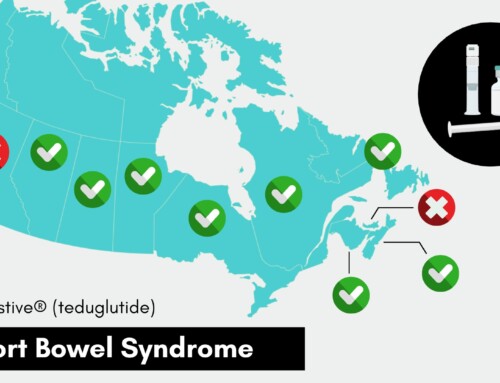IBS Global Impact Report 2018
April is IBS Awareness Month
 Irritable bowel syndrome (IBS) is a chronic, functional gastrointestinal disorder characterized by abdominal pain, bloating, and altered bowel patterns, including constipation and/or diarrhea. It is one of the most common gastrointestinal disorders worldwide, affecting 13-20% of Canadians. In 2003, the Canadian Society of Intestinal Research advocated to mayors across Canada and succeeded in having April declared as IBS Awareness Month in order to get more people talking about this incredibly common, yet stigmatized, digestive condition.
Irritable bowel syndrome (IBS) is a chronic, functional gastrointestinal disorder characterized by abdominal pain, bloating, and altered bowel patterns, including constipation and/or diarrhea. It is one of the most common gastrointestinal disorders worldwide, affecting 13-20% of Canadians. In 2003, the Canadian Society of Intestinal Research advocated to mayors across Canada and succeeded in having April declared as IBS Awareness Month in order to get more people talking about this incredibly common, yet stigmatized, digestive condition.
Due to the taboo nature of talking about digestive symptoms, many individuals with IBS suffer in silence. On top of that, being a functional disorder – an ailment that doesn’t have physical signs of damage such as inflammation or ulceration – many people do not take IBS as seriously as they would gastrointestinal diseases with tangible, organic causes. It can be tough for those with IBS to obtain adequate treatment and care for their disorder, and it can cause disruption to social interactions, work, and overall quality of life.
IBS Global Impact Report
A steering committee of four individuals – one from England, one from Belgium, and two from Canada, including the GI Society’s CEO, Gail Attara, and the GI Society’s IBS support group facilitator, Michelle Sewell – oversaw the creation of the 2018 IBS Global Impact Report. Funding, facilitation, and production support came from Allergan internationally.
The team looked at data from several peer-reviewed studies and a number of surveys conducted in different countries, including our 2016 IBS Survey. This is the second IBS Global Impact Report, which expands on a version released in 2016; the 2018 report focuses on the patient experience of IBS, an area of research which is sorely lacking. The goal of the report is to understand and raise awareness of the clinical and economic impacts of IBS on both health care services and the individuals living with IBS.
The 2018 IBS Global Impact Report focuses on four key areas:
- impact on quality of life
- psychological impact and attitudes
- the patient journey and challenges to achieving treatment
- finding solutions to achieve more effective symptom control
Report Findings
The 58-page report contains an extensive review of the findings. You can click here to download a copy, or contact our office and we will mail you a physical copy. Within the report, you will find a comprehensive review of many aspects of IBS, including diagnosis and treatment, impact on life, symptom experience, and more – all focused on the patient perspective. Findings of the report include that those with IBS experience a lot of stigmatization, embarrassment, and frustration related to their disorder. Many individuals feel that it is difficult to get health care professionals to listen to their concerns, and that other people don’t see their IBS as being ‘real’.
Some results demonstrated in this document include:
- on average, IBS patients would give up 25% of their remaining life to be symptom-free
- 40-60% of those with IBS experience psychological symptoms, including anxiety disorders and depression
- more than 50% of those with IBS feel as though health care professionals do not take them seriously
- it takes an average of four years to get an IBS diagnosis
But we can change these outcomes. Here are a list of suggestions for health care workers to start tackling these problems:
- make confident diagnoses, early on
- explain in ways that best help patients
- reassure IBS patients
- focus on food and lifestyle changes in mild IBS
- focus on pharmacotherapy for moderate to severe IBS




















